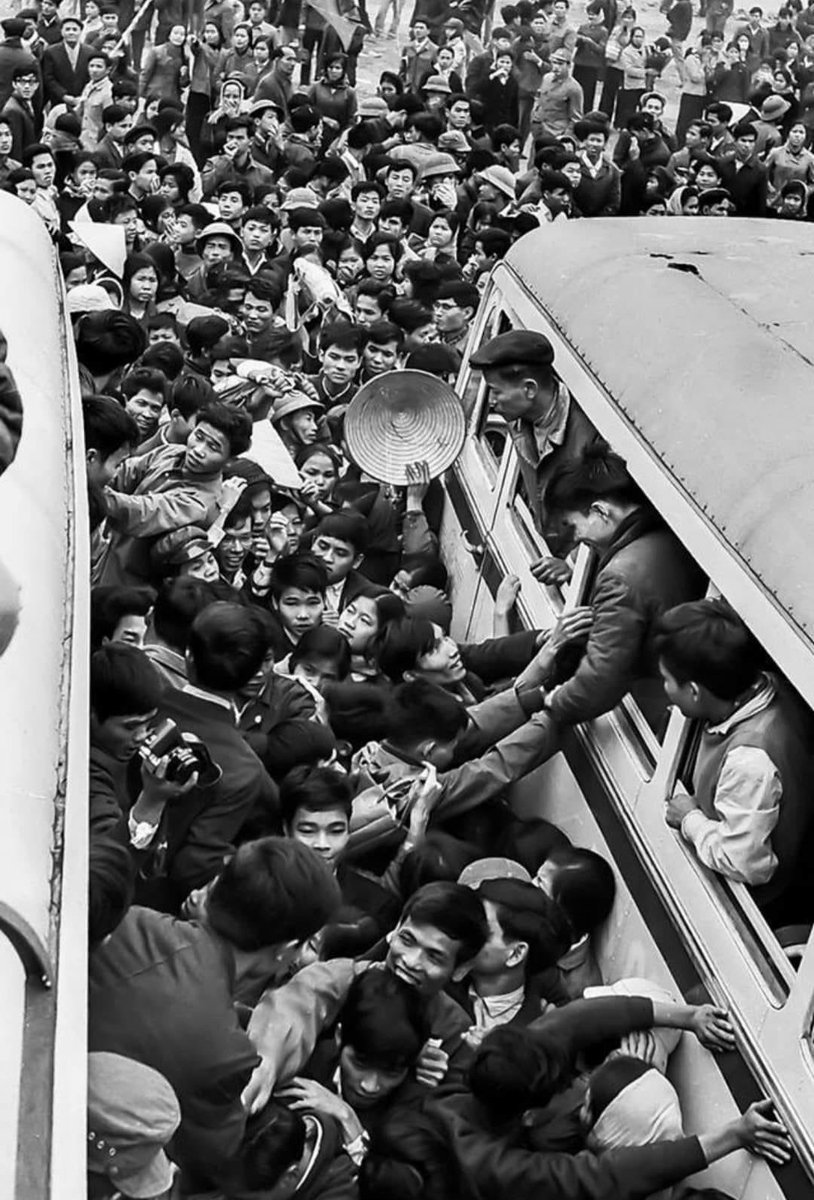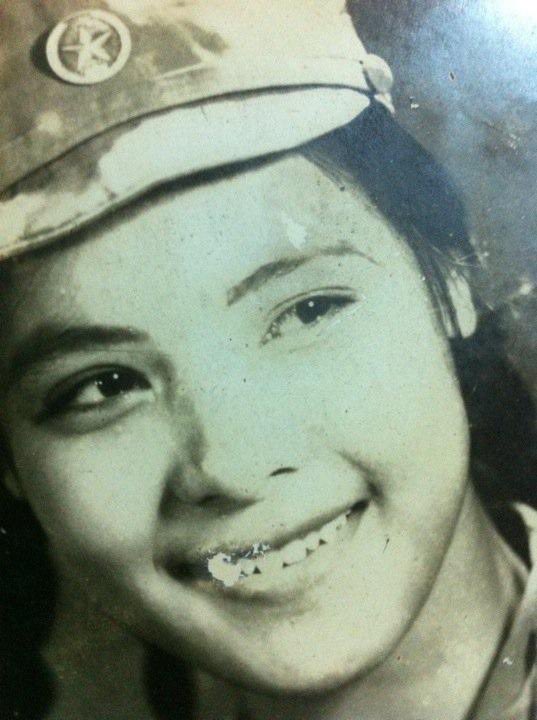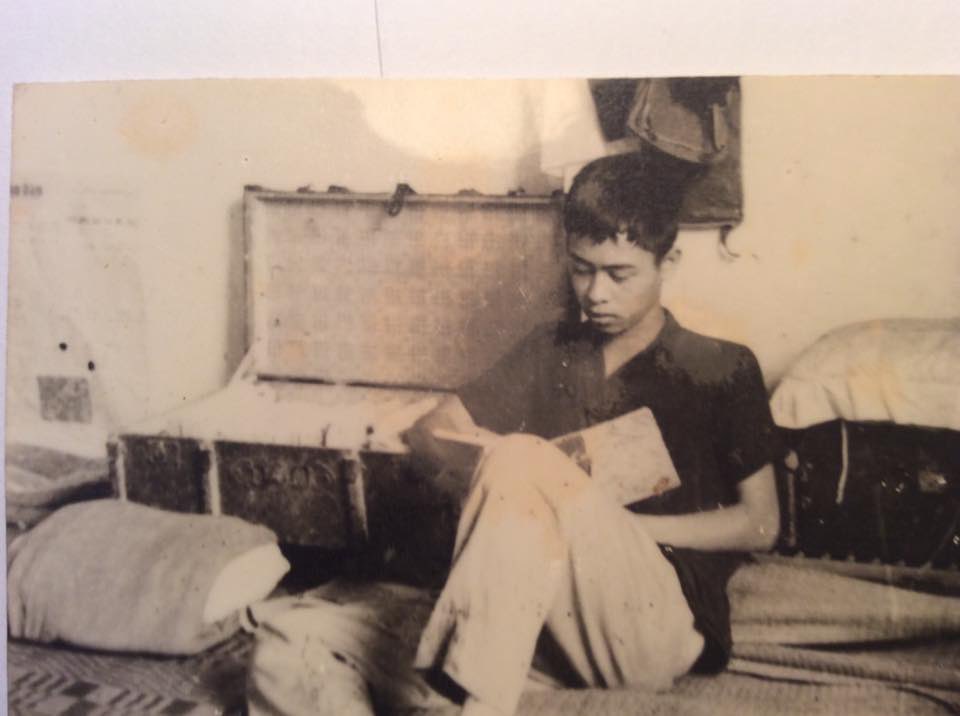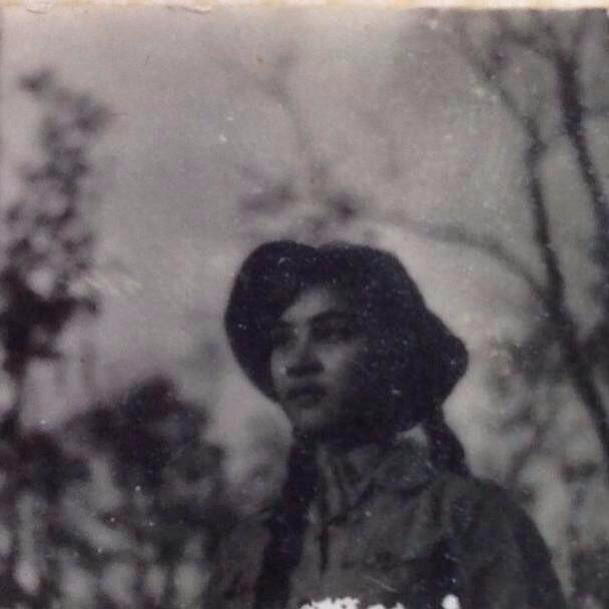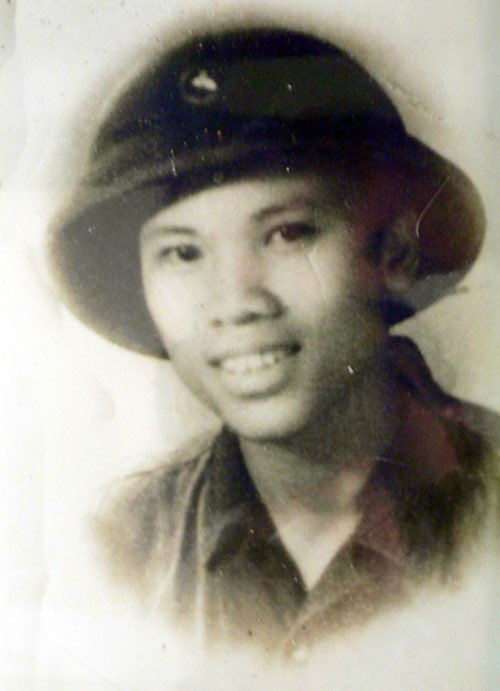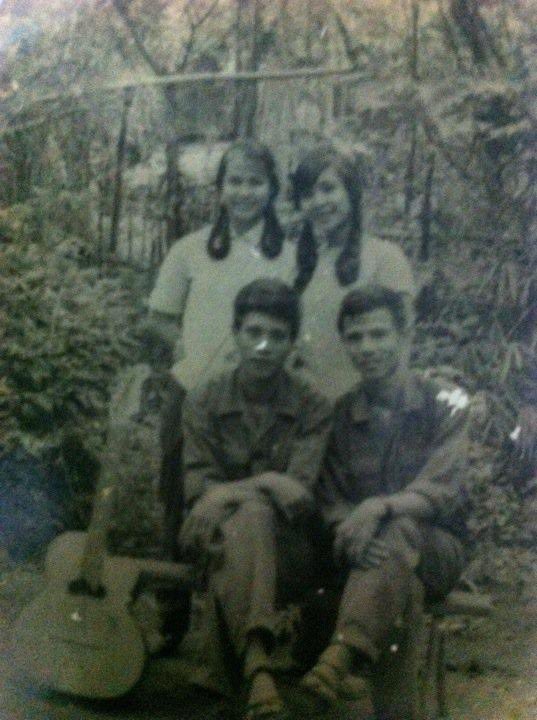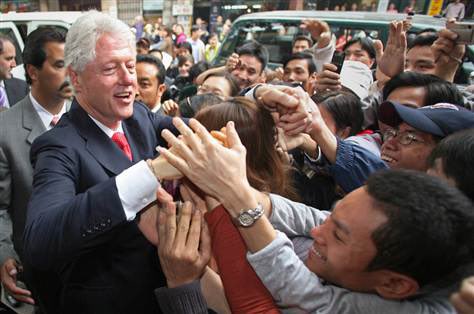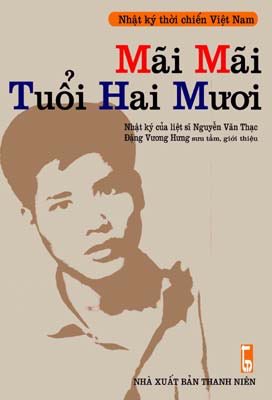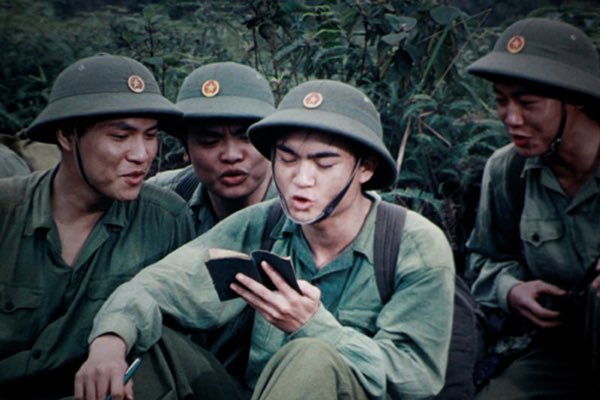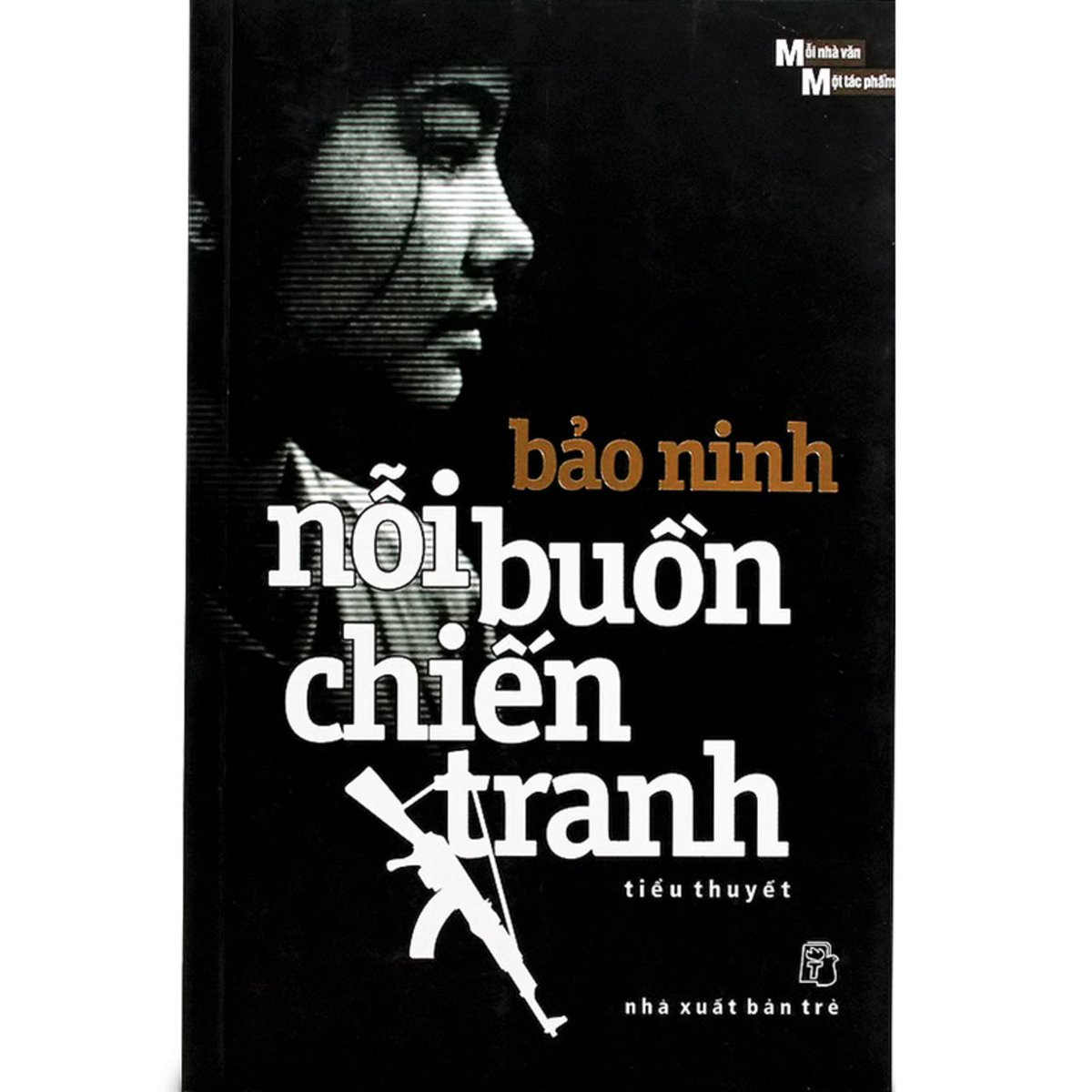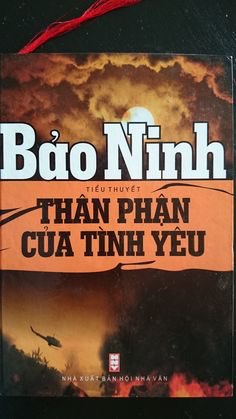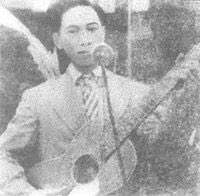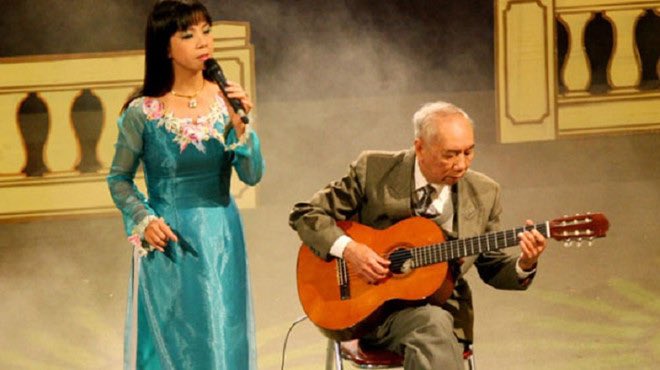Tomorrow marks the 44th anniversary of the end of the Vietnam war in 1975. This picture was taken 4 years before that, at my father’s university in Hanoi. He joined thousands from the university who volunteered to go to the war. My father was 19 years old.
This is my mother, who also volunteered to go to the war at the age of 17. In 1973, in the forest, she dreamt often about the end of the war, but she never thought the war would actually end one day.
This was my father in Sep 1971, right before enlisting. He liked to read and write, and probably had never got into a fight before. He would get a brief training for 3 months, and then would go to one of bloodiest battlefields in Quang Tri in 1972.
One month in the forest en-route the South, my mom got malaria. There was discussion about leaving her behind at some make-shift clinic. But her friend, a 19 yo didn’t let it happen “She will die if we leave her here. She comes with us, I’ll take care of her.”
My dad’s best friend lost his life in battle in 1972. So did many of his university friends. Some got panicked the first moment they heard the sound of bombing and gunfire, and died before firing a single bullet.
My mom was not a soldier, she was a dancer. Her unit was sent to perform to motivate soliders before battles. They were an important target to destroy. A few times they narrowly escaped death as they left before the bomb dropped, but the soliders they just perfomed to didn’t.
It was a miracle that both my parents survived the end of the war in 1975. My mom came to see her cousins for the 1st time, they had been fighting for the other side in the war. Half of her Catholic big family moved to the South in 1954, to follow Mother Maria & escape communism.
It was not something unusual in Vietnam - brothers from the same family fighting from both sides. Some families purposely divided that way so whoever won, there would be someone to save the rest of the family. My mom’s dad got saved by his own brother in the war with the French.
After the war, my mom got herself to university (she was self-studying all those years in the forest). My dad could only return to finish his study many years later, after another war has ended. They met in university, got married and I was born.
Post-war life was tough. The joy of the country unification was not enough to get everyone going. There was not enough food, the closed economy was collapsing. Many decided to escape. Some of my mom’s dancer friends deflected when they were on tour in East Germany.
My mom also considered running away. The only way was to get on a boat. Many people died during the journey, but there might be hope of a better life if she could get to the other side and bring me over. Luckily, she didn’t do it in the end.
Because we pushed through. Then came the end of the Cold War. Then came the decision to open the country. And then came @BillClinton’s visit. Many of American corporates returned to Vietnam in the late 90s/early 2000s. And I got my first job with one of those corporates.
I asked my mom what she thought about that. She just laughed “If I had known things would turn out like this, I would have joined the Americans a long time ago”. The war was over for so long people could start joking. And people could start asking honest questions too.
“Was the war necessary?” “What was worth it to lose millions of lives?” And so many “what ifs” from both sides. And peope were open to say that they have had enough with all the business of glorifying the war, in literature and movies; with expensive statues and celebrations.
Most people have moved on, but some are still haunted by the war. My father is one of them. He had made many war movies in his career. But he had yet make the most important one. That’s when a war diary got discovered - the writer: his friend from uni who died at the age of 20.
My dad got all his needed to make the movie of his life. The movie became a huge success, not because it was a cinematic masterpiece, but because it was telling the truth. For the first time a war movie was not just a piece of propaganda.
People cried in theatres, veterans wrote to him, among them vets from the other side as well. There were no heroes in his movie, hence there were no villains. Just many young Vietnamese men (boys) who came to the war and lost their lives before they even started living.
In Vietnam, Apr 30 is celebrated as “Victory Day” or “Liberation Day”. In other parts of the world, people might call it “National Day of Resentment”. For a few years there have been many suggestions to change it to “Reunification Day” or “Reconciliation Day”.
I have my own suggestion too: “Peace Day”. While I agree there is no need for celebration of victory, I think we should still commemorate this day - just differently. If everyone remembers what was lost to finally have peace, they would never want to make another war.
There is another movie I’d love to see made: an adaptation of the novel “The Sorrow of the War” by Bao Ninh. 1st published in the 80s, the book received critical acclaim both in Vietnam and internationally, but got banned shortly for its negative/ truthful depiction of the war.
Things got more open in 2000s, and the book was re-published, this time under a different name “The Fate of Love” - less anti-war, less troublesome. Another person seeing his works removed from the ban during this time was my dad’s father - a musician.
A singer/song-writer with French education, my grandfather got famous in the 40s/50s for his romantic songs. After the 2nd war with the French broke in Hanoi in winter 1946, he followed Ho Chi Minh’s government to retreat to the mountainous area further North.
While away from Hanoi, he wrote a melancholic song about his yearnings to go back to his beloved home. Noone knew that 20 years later, that very song would be used for propaganda in another war. Unlucky for him, the people using song was on the other side.
It was the Saigon’s government who decided to use the song in their propaganda to convince the Communists to turn to their side. His life was turned upside down. He lost his teaching job at the School of the Arts. All his songs banned. The family routinely under surveillance.
At least, he was still allowed to teach guitars at home to support the family of 4 kids.
But as the war got worse in the South in 72-73, a good news arrived: another person in the family got famous for his art - but this time thankfully the right government approved.
But as the war got worse in the South in 72-73, a good news arrived: another person in the family got famous for his art - but this time thankfully the right government approved.
Before my dad went to the South, his father cycled 200km to the training camp to say goodbye, and came back with poems written by my dad during training.
My grandfather sent them to a magazine; the poems won 1st prize of country’s the most prestigious literature competition.
My grandfather sent them to a magazine; the poems won 1st prize of country’s the most prestigious literature competition.
Slowly the suspension against my grandfather worn off. After all his son was a patriot, proven by the poems he kept writing in between battles and sending back from the frontlines.
But he still had to wait for another 30 years to see his music perfomed on stage again.
But he still had to wait for another 30 years to see his music perfomed on stage again.
And when they finally got performed in late 90s, they got it big. The most famous singers sang his songs, at 80 my grandfather got famous again & became the icon of an era. Many TV shows, many interviews, many articles, few mentioned how his song “gave him trouble in the past”.
Noone talked about what kind of music he could have made if he had been allowed to write and to sing freely. Noone talked about why his son - the celebrated poet didn’t go home immediately after the war like everyone else.
Very few people knew my father went to the landmine near Cambodia’s border after 1975 so he could continue to send home the army salary to support his siblings’ education, because his father was not allowed to work.
It was another miracle that he made it back alive, again.
It was another miracle that he made it back alive, again.

 Read on Twitter
Read on Twitter